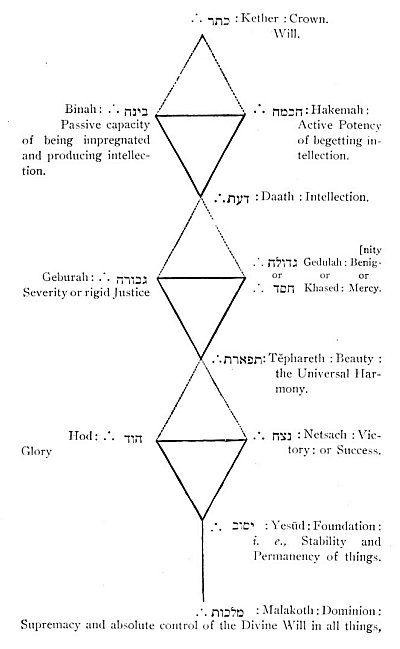The ideal consummation of Platonic science is the arrival at the contemplation of that of which earth exhibits no express image or adequate similitude, the Supreme Prototype of all beauty, pure and uncontaminated with human intermixture of flesh or color, the Divine Original itself. To one so qualified is given the prerogative
p. 693
of bringing forth not mere images and shadows of virtue, but virtue itself, as having been conversant not with shadows, but with the truth; and having so brought forth and nurtured a progeny of virtue, he becomes the friend of God, and, so far as such a privilege can belong to any human being, immortal.
Socrates believed, like Heraclitus, in a Universal Reason pervading all things and all minds, and consequently revealing itself in ideas. He therefore sought truth in general opinion, and perceived in the communication of mind with mind one of the greatest prerogatives of wisdom and the most powerful means of advancement. He believed true wisdom to be an attainable idea, and that the moral convictions of the mind, those eternal instincts of temperance, conscientiousness, and justice, implanted in it by the gods, could not deceive, if rightly interpreted.
This metaphysical direction given to philosophy ended in visionary extravagance. Having assumed truth to be discover-able in thought, it proceeded to treat thoughts as truths. It thus became an idolatry of notions, which it considered either as phantoms exhaled from objects, or as portions of the divine pre-existent thought; thus creating a mythology of its own, and escaping from one thraldom only to enslave itself afresh. Theories and notions indiscriminately formed and defended are the false gods or “idols” of philosophy. For the word idolon means image, and a false mind-picture of God is as much an idol as a false wooden image of Him. Fearlessly launching into the problem of universal being, the first philosophy attempted to supply a compendious and decisive solution of every doubt. To do this, it was obliged to make the most sweeping assumptions; and as poetry had already filled the vast void between the human and the divine, by personifying its Deity as man, so philosophy bowed down before the supposed reflection of the divine image in the mind of the inquirer, who, in worshipping his own notions, had unconsciously deified himself. Nature thus was enslaved to common notions, and notions very often to words.
By the clashing of incompatible opinions, philosophy was gradually reduced to the ignominious confession of utter incapacity, and found its check or intellectual fall in skepticism. Xenophanes and Heraclitus mournfully acknowledged the unsatisfactory result of all the struggles of philosophy, in the admission of a universality of doubt; and the memorable effort of Socrates to rally
p. 694
the discomfited champions of truth, ended in a similar confession.
The worship of abstractions continued the error which personified Evil or deified Fortune; and when mystical philosophy resigned its place to mystical religion, it changed not its nature, but only its name. The great task remained unperformed, of reducing the outward world and its principles to the dominion of the intellect, and of reconciling the conception of the supreme unalterable power asserted by reason, with the requisitions of human sympathies.
A general idea of purpose and regularity in nature had been suggested by common appearances to the earliest reflection. The ancients perceived a natural order, a divine legislation, from which human institutions were supposed to be derived, laws emblazoned in Heaven, and thence revealed to earth. But the divine law was little more than an analogical inference from human law, taken in the vulgar sense of arbitrary will or partial covenant. It was surmised rather than discovered, and remained unmoral because unintelligible. It mattered little, under the circumstances, whether the Universe were said to be governed by chance or by reason, since the latter, if misunderstood, was virtually one with the former. “Better far,” said Epicurus, “acquiesce in the fables of tradition, than acknowledge the oppressive necessity of the physicists”; and Menander speaks of God, Chance, and Intelligence as undistinguishable. Law unacknowledged goes under the name of Chance: perceived, but not understood, it becomes Necessity. The wisdom of the Stoic was a dogged submission to the arbitrary behests of one; that of the Epicurean an advantage snatched by more or less dexterous management from the equal tyranny of the other.

Moe is the founder of GnosticWarrior.com. He is a father, husband, author, martial arts black belt, and an expert in Gnosticism, the occult, and esotericism.





